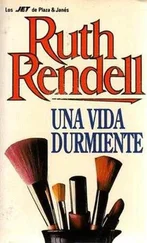“I do have to work,” Anthony said after the fourth time of asking. “Sorry, but that’s the way it is.”
Brian gave him his beaten spaniel look. “I suppose the fact is you don’t like me. I bore you. Go on, you may as well admit it. I am a bore. I ought to know it by now, Vesta’s told me often enough.”
“Since you ask,” said Anthony, “yes, it’d bore me going out and getting pissed every night. And I can’t afford it.” He relented a little. “Come in here for a while tomorrow night, if you like. I’ll get some beer in.”
Brightening, Brian said he was a pal, and turned up at seven sharp on the Friday with a bottle of vodka and one of French vermouth which made Anthony’s six cans of beer look pathetic. He talked dolefully about his job—he sold antiques in a shop owned by Vesta’s brother—about the horrors of living always in furnished rooms, Vesta’s refusal to have children even if they got a house, her perpetual absences in the evenings—worse than ever this week—his drink problem, and did Anthony think he was an alcoholic?
Anthony let him talk, replying occasionally in monosyllables. He was thinking about Helen’s latest letter. It was all very well to talk of absence making the heart grow fonder, but “out of sight, out of mind” might be just as true a truism. He hadn’t expected her letters to concentrate quite so much on Roger’s woes. Roger had scarcely been mentioned during that summer of snatched meetings, that clandestine fortnight of love when a shadowy husband had been away somewhere on a business trip. Now it was Roger, Roger, Roger. I ask myself if it wouldn’t be better for both of us to try and forget each other. We could, Tony. Even I, whom you have called hyper-romantic, know that people don’t go on loving hopelessly for years. The Troilus and Cressida story may be beautiful but you and I know it isn’t real. We should get over it. You’d marry someone who is free and trouble-free and I’d settle down with Roger. I just don’t think I can face Roger’s misery and violence, and not just for a while but for months, years. I’d know for years that I’d ruined his life .… Stupid, Anthony thought. Illogical. He and she wouldn’t go on loving hopelessly for years, but Roger would. Of all the irrational nonsense …
He said “Yes” and “I see” and “That’s bad” for about the fiftieth time to Brian and then, because he couldn’t take any more, he bundled him out with his two half-empty bottles under his arm. Having drunk no more than a pint of beer himself, he set to work and was still writing at two in the morning. The coarse, talking-with-his-mouth-full voice of Stanley Caspian woke him at ten, and he waited until he and Arthur Johnson had gone before going to the bathroom. It was lucky he happened to be in the hall when Linthea Carville, her son, and Steve and David arrived, for it was Arthur Johnson’s bell they rang. Anthony saw them silhouetted behind the red and green glass and, making a mental note that sometime he must put his own name under his own bell, he went outside and took them round the back to the cellar. Linthea had brought a torch and two candles, and the boys had the box barrow. They didn’t take the barrow down but carried the wood up in armfuls.
He was impressed by Linthea’s strength. She had a perfect body, muscular, but curvy and lithe as well, and the jeans and sweater she wore did nothing to impede those graceful movements which he found himself watching with a slightly guilty pleasure.
“There’s more wood here than I thought,” he said hastily when he realised she was aware of his gaze. “We’ll have to make a second journey,” and he pushed the door as if to shut it.
“Don’t forget my boy’s still down there,” said Linthea. “They all are. And they’ve got your torch.”
The training they had in common had prevented them from falling into the adult trap of doing all the work themselves on the grounds that they could do it faster and more efficiently than the children. But once the barrow was filled, they had left the boys to explore the rest of the cellar. Linthea called out, “Leroy, where are you?” and there came back a muffled excited call of “Mum!” which held in it a note of thrill and mischief.
David and Steve were sitting on an upturned box, the torch between them, in the first room of the cellar. They giggled when they saw Linthea. Carrying a candle, she went on through the second room, walking rather fastidiously between the banks of rubbish. Anthony was just behind her and when, at the entrance to the last and final room, her candle making the one tiny puddle of light in all that gloom, she stopped and let out a shriek of pure terror, he caught her shoulders in his hands.
Her fear was momentary. The shriek died away into a cascade of West Indian merriment, and she ran forward, shaking off Anthony’s hands, to catch hold of the boy who was hiding in a corner. Then and only then did he see what she had seen and which had sent that frightened thrill through her. As the candlelight danced, as the woman caught the laughing boy, the torch beam levelled from behind him by Steve, showed him the pale figure leaning against the wall, a black handbag hooked over one stiff arm.
“You wanted to give your poor mother a heart attack, I know you,” Linthea was saying, and the boy: “You were scared, you were really scared.”
“They were all in it,” said Anthony. “I wonder how on earth that thing came to be down here.”
He went up to the model, staring curiously at the battered face and the great rent in its neck. Then, hardly knowing why, he touched its cold smooth shoulders. Immediately his fingertips seemed again to remember the feel of Linthea’s fine warm flesh, and he realised how hungry he had been to touch a woman. There was something obscene about the figure in front of him, that dead mockery of femaleness with its pallid hard carapace as cold as the shell of a reptile and its attenuated unreal limbs. He wanted to knock it down and leave it to lie on the sooty floor, but he restrained himself and turned quickly away. The others were waiting for him, candles and torch accounted for, at the head of the steps.
9
————
November was the deadline Anthony had given Helen for making up her mind. It was nearly November now and he was due to make his phone call to her on Wednesday, October 30. The letter he had received from her on the previous Tuesday had dwelt less on Roger’s feelings and more on her own and his. In it she had written of her love for him and of their love-making so that, reading it, he had experienced that curious pit-of-the-stomach frisson that comes exclusively when nostalgia is evoked for a particular and well-remembered act of sex. With this in mind, he knew he would want to refer to it in their telephone conversation, would use it to reinforce his pressures on her, and he didn’t want that conversation overheard by the Kotowskys, Li-li Chan, or the new tenant of whom he had once or twice caught a glimpse.
Why not ask Linthea Carville if he could make the call from her flat? This seemed to have a twofold advantage. He would have complete privacy and, at the same time, the very making of such a request, involving as it would an explanation of his situation with Helen, would reinforce the friendship that was growing between Linthea and himself.
But by Tuesday, October 29, that situation had changed again. He retrieved Helen’s letter from under the huge pile of correspondence for Winston Mervyn which had fallen on top of it, and tore open the envelope only to be bitterly disappointed. On Wednesday when you phone I know you will ask me if I’ve come to a decision. Tony, I haven’t, I can’t. We have had a terrible weekend, Roger and I. First of all he started questioning me about my movements during that fortnight he was away in the States in June. I’d told him before that I’d spent one weekend with my sister and apparently he’s now found out from my brother-in-law that I was never there. He made a lot of threats and raved and sulked but in the evening he became terribly pathetic, came into my room after I’d gone to bed and began pouring out all his miseries, how he’d longed for years to marry me, served seven years like Jacob (of course he didn’t, I’m not old enough) and now he couldn’t bear to be frozen out of my life. This went on for hours, Tony. I know it’s blackmail but most people give in to blackmail, don’t they?
Читать дальше











